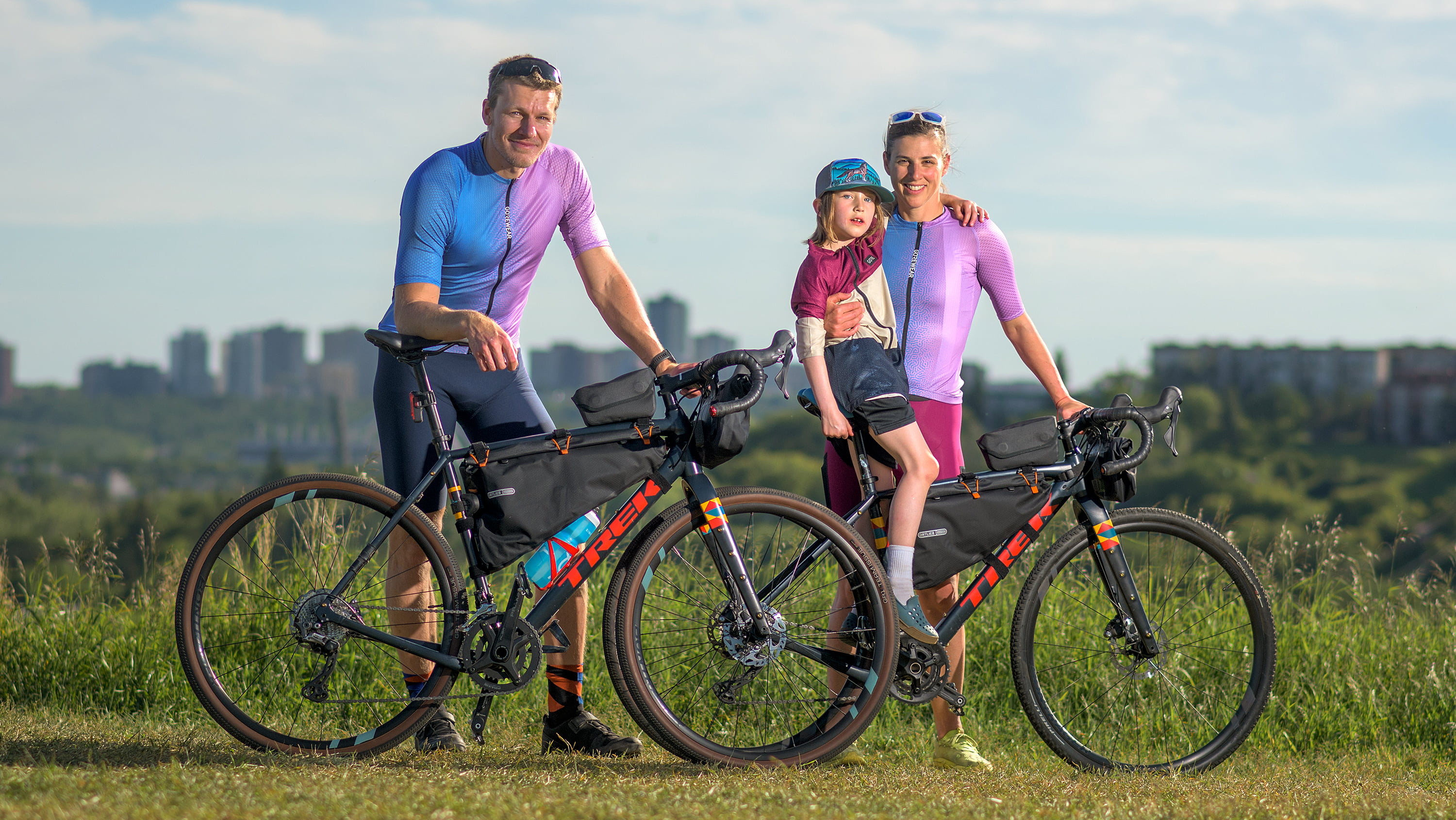Cycling 250 kilometres in a single day is no small task, but Timm Döbert and Leanna Carriere have taken on the challenge of doing so for 30 consecutive days. Fuelled by a passion for the environment and plant-based nutrition, the duo are undertaking a 7,000-kilometre, cross-Canada journey from Halifax to Vancouver to draw attention to the United Nations’ 30x30 target.
To meet the UN goal of protecting 30 per cent of land, freshwater and oceans by 2030, Canada needs to more than double the current amount of areas under protection. Döbert and Carriere are visiting 30 key biodiversity areas on their month-long journey, including national and provincial parks, biosphere reserves and migratory bird sanctuaries.
Every night, after a hard day of cycling, they’ll recharge with a brief rest in the day’s protected area and highlight some of the unique features and creatures that call that space home.
“Species are disappearing fast, populations are shrinking fast, so how do we protect biodiversity? It’s largely about having sufficient habitat,” says Döbert, a visiting scientist and postdoctoral fellow in the Faculty of Science.
“People are interested in sports, humans are interested in other humans’ stories, so it’s really bringing in a different demographic and using sports as a platform to stand up, speak out and advocate for nature,” adds Carriere, an endurance athlete, personal trainer and entrepreneur.
Riding for research
Several research labs at the University of Alberta are collaborating with Döbert and Carriere, gathering data from their journey. Carla Prado will focus on the impact of nutrition and body composition, while Amber Mosewich and Michael Kennedy will gain insight into mental and physical resilience at the limits of endurance.
“This study presents a unique opportunity to bring physiology and psychology together,” says Mosewich, associate professor in the Faculty of Kinesiology, Sport, and Recreation and member of the Women and Children’s Health Research Institute.
“There’s an area of physiology called psychobiological or psychophysiological, which essentially combines how the perceptions of fatigue and how you’re feeling are tied to your physiology,” says Kennedy, associate professor in the Faculty of Kinesiology, Sport, and Recreation. “Physiology is influencing perception, and perception is also influencing physiology.”
The athletes will do lab testing with Kennedy and interviews with Mosewich before and after their trek, and will fill out daily questionnaires for both researchers in which they’ll discuss everything from mood to fatigue and physical symptoms. They will also look back on the day’s riding and share what they believe their effort level was, as a higher perceived effort despite the same speed is a key indicator of fatigue.
They will also provide audio recordings captured during key moments of the journey, which will allow Mosewich to better understand their mental state and any coping strategies they’re drawing on during those milestones.
“We don’t often get to talk to athletes right when they’re in the midst of their performance, so I think that will be a real asset to the study.”
Testing the limits of resilience
Kennedy has an additional questionnaire to be completed every three days that assesses a variety of symptoms he has found are early warning signs of overtraining, such as heaviness in the legs and arms, sleep difficulties and a racing heart.
“We’re using that questionnaire to understand what the transition is essentially from being a well-rested healthy human at the start of the cycling sojourn, what that will look like by the time they get to Vancouver,” says Kennedy.
Although most training plans incorporate a 24-hour recovery window, that will become less and less effective as Döbert and Carriere train at such a high volume on consecutive days — in theory, they’ll need recovery time that they simply won’t have if they want to get to all their planned stops.
“The idea here is that we are circumventing what we know about these sorts of basic recovery cycles that humans have, especially with aerobic exercise,” Kennedy says.
That challenge of finding adequate recovery time extends to the mental realm as well, Mosewich notes.
“In psychology we can see a depletion of factors like the ability to self-regulate that will decrease when we’re fatigued or under a high level of demand for quite a long period of time,” she says. A decline is also often seen in attention, memory and cognitive processing.
“We stand to learn a lot about resilience, adaptability and coping through an expedition like this,” says Mosewich.
“It really comes back to this idea of resilience,” echoes Döbert. “How do you create and build resilient landscapes that carry us and all species to the future?”
People can follow the 30-day journey (or the even longer expedition they have planned for June 2025, in which they will cycle from Alaska to Patagonia following the pathways of migratory birds) through the duo’s website or Instagram.
